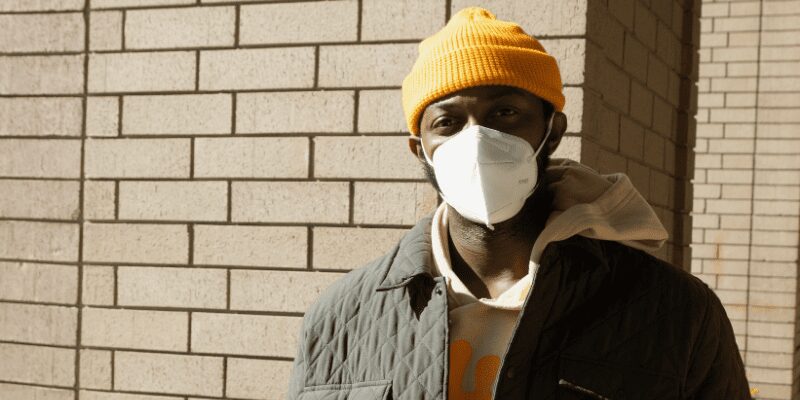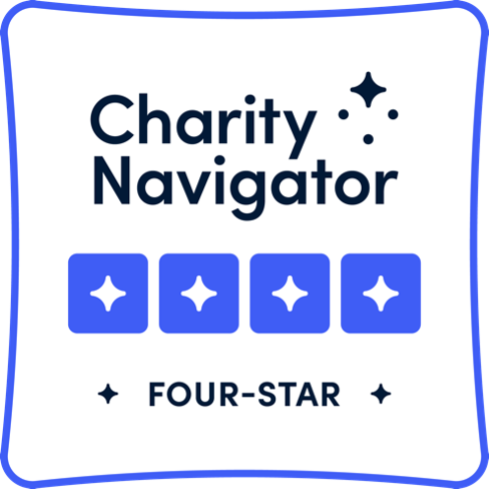This story was published originally on Dec. 2, 2020 and has been updated as of March 30, 2021.
Jackson Hayes moved to Atlanta from Charlotte, North Carolina to “get out of his comfort zone,” and pursue his interests in entertainment.
“I’m single and live by myself — of course I’ve got some friends and stuff, and they’re like family,” Jackson says, adjusting the bands of a N95 mask as it shifts down the bridge of his nose. “I dance, sing and act as well, and Atlanta is a melting pot for Black entrepreneurs. If you want to try your hand in the entertainment industry, you want to come here.”
Jackson’s had a day job in health care, though, for the past couple years. His godbrother’s family had been providing care in group homes around Charlotte for about 20 years, but they recently decided to open a branch in Macon.
“I decided to help them with that, and that way it would give me a skillset and allow me to be financially stable,” Jackson says.
He worked in Intensive Family Intervention Services, which he said acted as a “middle point” for a child who had been in the juvenile detention system. They helped connect kids with advocates, teachers, community leaders and therapists—and it was free to families that had insurance.
But then the coronavirus pandemic hit.
“We’re paid for by the government, and once there’s no kids, there’s no money,” he says. “We can do Zoom meetings and stuff like that, but that stopped and eventually it left us with no clients.”
He was furloughed from his position. COVID-19, and statewide shutdowns in an attempt to mitigate the spread of the infectious and potentially deadly disease, also put a strain on any possible career moves in the entertainment industry.
Months later, Jackson needed help paying his rent. He had been dipping into his savings, and those funds were starting to get low. He needed help. He found help on a message board for his apartment complex in East Point, he says.
Jackson knew that this would be his best opportunity to get the help he needed.
He showed up with papers tucked into the pockets of an Army green jacket, all of which had been detailed online for him to bring to make the process easy for him, he says.
“I live in a great facility,” Jackson says. “I had been checking out the message board, and I made sure all my bases were covered. I got a fast response, and it was quick and fast and [event coordinators] let me know all the documents I needed.”
Thankfully, Jackson was able to use his phone to look up the website he saw on his community’s message board, review the necessary requirements and then find out all of the documents he needed.
But this can be a barrier for many people, says Tosin Ogunnoiki, marketing specialist for the Atlanta Volunteer Lawyers Foundation.
“I feel like the main barrier is the technology barrier,” Tosin says. “The biggest issue is technology and being able to spread the word about assistance.”
Each situation and reason people need assistance is different, and Tosin says he tries to be
patient and reassuring with each client.
The discussion with clients can often get emotional and tense, he says. That’s understandable.
“I try to be sensitive to [each situation],” he says. “I’ve definitely seen a couple of people come in with eviction notices here, and I think everybody that comes in is scared—a lot of people out there are scared they will lose their home.”
Pamela Hayes — no relation to Jackson — had that same fear. She lives in a South Atlanta neighborhood where she was born and raised. She had gotten a job in the restaurant industry to support her family and small children toward the end of 2019, but after only a few months on the job she heard rumblings of the possible shutdown if the pandemic were to make its way to Georgia.
It “didn’t close down at first,” she said, but her hours were cut back drastically. As the situation became even more dire, the restaurant shut down for good.
“They said it was a temporary thing, and it just lingered on,” Pamela says. “When I lost my job, I applied for unemployment. I applied for that in May, and I was already struggling by then. I didn’t get unemployment until last month [October].
“I had to wait that long, trying and struggling to pay bills. I had called and called the unemployment office for almost 30 days straight.
“It was so much on me at one time.”
But someone directed Pamela to the event hosted by United Way that weekend.
“It was so easy, and they were all so nice to me,” she says.
Both Jackson and Pamela said the process to apply—while seemingly daunting at first—was quick and easy, and they were thankful for the team of workers who assisted them to make sure they were able to get the help they needed.
“I didn’t want to let myself be drowning and set myself all the way back,” Jackson says. “I’m looking for another job right now, but that takes time. This is enough to get me the boost I needed.”
To check your eligibility for assistance through the Atlanta Emergency Housing Assistance Program, click here.
Helping families and individuals attain financial security is foundational for our community to thrive. We know that every person whose life we change, will go on to change the lives of countless others. And when we work together—pooling our resources, time and energy—our community impact grows exponentially. United, we can do more for our community.
When we Unite for More, everyone can climb. Work this important is never over or done alone. Can children, families and Greater Atlanta communities count on you? Unite for more today.





